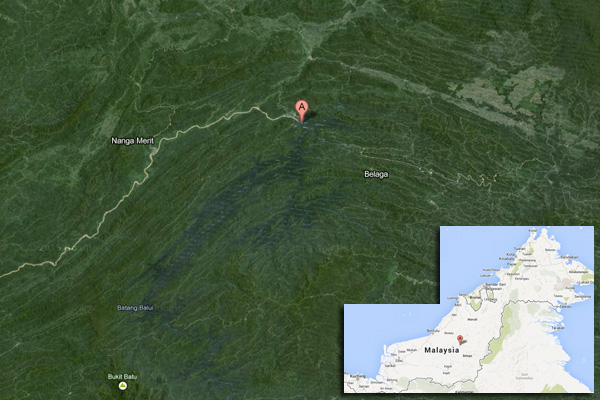Rights activists are warning that a proposal to classify islands forming in the midst of the Bakun Dam reservoir will further deprive indigenous forest people of their traditional land.
The Borneo Project, a Berkeley-based group that advocates on behalf of Sarawak’s forest people, has started a petition calling upon Sarawak’s chief minister Abdul Taib Mahmud to cancel plans to establish “Bakun Islands National Park”, highlands that became islands once the massive dam was completed in 2011. The Borneo Project says the park will dispossess 500 people of their traditional homeland, a cruel twist given that some 700 square kilometers of forest and farm land was flooded by the dam.
“The government announcement about the park stated ‘no claim to any rights or privileges in or over the area intended … shall be entertained’. In other words, all indigenous land rights claims in the designated National Park area will be deemed null and void,” states the petition, which is hosted by Change.org.
“The indigenous people were neither consulted, nor informed, about the plans to gazette this national park. The notice was only posted in the newspaper, which — as the government knows — isn’t accessible in these remote regions.”

Google Earth view of the Bakun Dam area
According to a local official, the state could recognize the islands as native customary rights lands to enable them to continue carrying on with traditional activities.
“Ideally, the people’s rights should not be extinguished, but admitted and preserved under section 15 of the National Parks and Nature Reserves Ordinance so that they can continue to exercise and enjoy the rights and privileges belonging to them, including hunting and fishing rights and rights to collect jungle produce,” Sarawak PKR chief Baru Bian told The Sun Daily.
“In addition, they should be given the rights to manage the park and enjoy the benefits which may result from any activity in the area, such as eco-tourism.”
The declaration of Bakun Islands National Park is only the latest set back for Sarawak’s indigenous people, who have seen most of their traditional forests destroyed by logging and conversion to industrial timber and oil palm plantations over the past thirty years. Less than a quarter of Sarawak’s forest cover remains intact.














